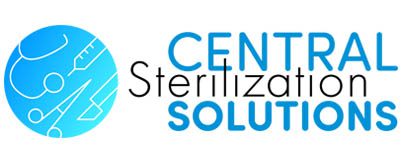THE CER IS A STANDALONE CERTIFICATION. CRCST CERTIFICATION IS NOT REQUIRED IN ORDER TO TEST.
In recent years, few areas of sterile processing have seen such rapid, and necessary, change as endoscope reprocessing. To help ensure that endoscope reprocessing professionals have the knowledge and skills necessary to handle this rapidly evolving specialty, IAHCSMM has developed the Certified Endoscope Reprocessor (CER) exam.
Certified Endoscope Reprocessor (CER) certification is designed to recognize individuals who have demonstrated the knowledge and skills necessary to pre-clean, test, decontaminate, inspect, disinfect and/or sterilize, transport, and store endoscopes in accordance with industry standards, guidelines and regulations, and manufacturers’ instructions for use. CERs are crucial members of the healthcare team who are responsible for endoscope preparation, which is critical for patient safety in a healthcare facility.
To earn CER certification, candidates are required to successfully demonstrate skills through completion of hands-on work experience as well as successful completion of an examination developed to measure the understanding of endoscope care and handling and infection prevention. CER certificants are required to recertify annually through completion of continuing education requirements.
HOW TO PREPARE FOR THE EXAMINATION
Those interested in becoming a Certified Endoscope Reprocessor (CER) can prepare in one of the following ways:
- Virtual/In-Class: CSS offers an online virtual and in-class instruction with a qualified instructor that is designed to help prepare Central Service professionals for the CER exam.
- Online Course: CSS offers an online course that is designed to help prepare Central Service professionals for the CER exam. IAHCSMM’s CS Leadership Manual was used as a reference in creating the CHL exam, along with IAHCSMM’s CS Technical Manual (8th edition) and ANSI/AAMI’s ST79 (2010 edition), all available through the IAHCSMM Online Store. An additional resource, AORN’s Perioperative Standards and Recommended Practices (2017 edition), can be purchased through the AORN website. In addition, students will have access to the online training videos. IAHCSMM’s ENDOSCOPE REPROCESSING MANUAL (1ST ED.)was used as a reference in creating the CER exam, along with ANSI/AAMI’s ST91 (2015 ED.), and the following articles by the Society of Gastroenterology Nurses and Associates (SGNA): STANDARD OF INFECTION PREVENTION IN THE GASTROENTEROLOGY SETTING (2019), and STANDARDS FOR INFECTION PREVENTION IN REPROCESSING FLEXIBLE GASTROINTESTINAL ENDOSCOPES (2018).
You can order the IAHCSMM and ANSI/AAMI publications through the IAHCSMM store and download the above articles from the SGNA
- Work Experience: You may take the exam based on your personal knowledge from experience in the field; it is not required that you take or pass a preparatory course, nor study materials on your own. Applicants can apply directly to take the exam without purchasing study materials or enrolling in a course.
CER certification also requires the completion of three months of hands-on experience reprocessing endoscopes prior to testing. Because of the complex nature of endoscopes, firsthand experience is essential to supplement an individual’s understanding of the concepts, knowledge, and standards necessary to be successful reprocessing endoscopes and on the CER Exam.
Please Note: IAHCSMM’s education department developed some of the materials referenced above as an optional method to assist individuals in preparing for the CER exam. They were developed and produced independently from the Certification Council, which does not develop, require, approve, or endorse any specific training materials. Online/distance learning courses are not available for the CER.
CONTENT & COMPOSITION OF THE EXAMINATION
The CER exam will test your proficiency in these areas:
- Microbiology and Infection Control
- Endoscope Purpose, Design, and Structure
- Work Area Design
- Endoscope Reprocessing Steps
- Endoscope Handling, Transport, and Storage
- Endoscope Tracking, Repair, and System Maintenance
- Human Factors That Impact Endoscope Systems
Each of these seven knowledge domains outline the type and amount of content covered in each section, as well as its weight on the certification exam. Please click here to see the full CER Exam Content Outline.
The exam is computer based and no writing instruments are needed (a paper and pencil version of the exam is not available.) The test is comprised of 150 multiple choice questions and you will have 3 hours in which to complete the exam. Questions can be marked for review and answered or changed later in the exam. A 15 minute tutorial describing how to take the exam on the computer precedes the test and is also available online, here. For more information regarding the testing process please see the Certification Testing section.
REQUIREMENTS FOR THE EXAMINATION
As well as passing the certification exam, three months of hands-on experience are required in order to obtain CER status. Because of the complex nature of endoscopes, firsthand experience is essential to supplement an individual’s understanding of the necessary knowledge and concepts of reprocessing, and to illustrate their practical use. This experience must include the pre-cleaning, testing, decontaminating, inspecting, disinfecting and/or sterilizing, transporting, and storing of endoscopes.
Provisional testing is not available for CER examinations. All experience must be completed in full before applying to take the exam. Hours must have been accumulated within the past three years.
VERIFICATION OF EXAMINATION REQUIREMENTS
Hands-on experience is required for your examination, and documentation of that experience must be provided on the exam application as indicated. No other documentation is necessary or acceptable.
The sections of your application documenting your experience must be completed by your department’s immediate manager/supervisor. An individual in a leadership role within the department cannot document their own experience; they are still required to have their immediate manager complete all required documentation. The required experience must be current, meaning that it has to have been accrued within the past three years at most.
Provided they are in a position above your own then experience hours can be documented by:
- Lead Techs, Coordinators, or Supervisors
- Managers, Chiefs, Directors, or Administrators
- Hospital-based Educators or Trainers
Hours cannot be documented by technicians or private instructors. In order to verify experience, all contact information provided for the manager or supervisor documenting your hours must be current or your application will be rejected.
Hands-on hours can be accumulated on a paid or volunteer basis and you need not be currently employed or volunteering with a facility in order to test. All hours must be completed prior to testing.
Applications requiring hands-on experience may be subject to verification before processing. Once selected for verification an application cannot be processed further until the manager/supervisor documenting the applicant’s hours of experience can be contacted and the experience confirmed. If the listed manager/supervisor cannot be reached for confirmation the application will be returned unprocessed. If the manager/supervisor is reached but refutes the information submitted in any way, the application will be sent to the Certification Council for further investigation and review.
Applicants who have submitted a completed application and who are notified that they do not meet the eligibility requirements may appeal this decision by sending a written notice of the appeal to the Certification Council within 30 days of the time stamp on the eligibility decision. Appeals that cannot be resolved to the applicant’s satisfaction will be forwarded by the Certification Manager to the Council for review along with any relevant information from the initial review of the application. Written notice of the final decision will be sent to the applicant within 30 days of the review. The decision of the CC will be final.
[/vc_column_text][/vc_column][/vc_row]


